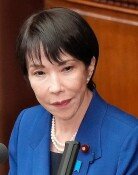[Opinion] Decoupling of Korean Stock Markets
[Opinion] Decoupling of Korean Stock Markets
Posted January. 30, 2008 03:29,
New York stock markets open at half past 11 p.m. Korean time. Some enthusiastic Korean individual investors go to bed after closely watching the beginning movements in New York stock markets. After watching the markets across the Pacific move upward, they can have a good nights sleep. But, they cannot sleep well when global stocks show weak performances, as they have recently done. After waking up early in the morning, they try to find out the closing prices of New York stock markets. They have even changed their living pattern since Koreas stock markets are known to synchronize with the U.S. counterparts.
When Koreas benchmark KOSPI almost reached 2,000 last spring, many analysts in Koreas Wall Street, Yeouido, emphasized Korean stock markets do not move in tandem with the U.S. stock markets any more. From their perspective, Korean stock markets were no longer a dependent variable of the U.S. stocks. The so-called decoupling of Korean stock markets and U.S. stock markets has emerged as a new trend in local markets. Some even analyzed that Asia will stand at the center of the global stock markets since Asias emerging economies have shown exponential growths and their businesses have achieved good performances. It seemed that Korean stock markets declaration of independence was impending.
Even though the U.S. stock markets do not make a strong impact on global markets any longer, America is still the worlds largest consumer and claims a quarter of the global economy. Also, although large U.S. financial firms are borrowing money from the Middle Eastern and Asian countries in order to make up for their losses stemming from the subprime mortgage crisis, America still holds a tight grip on the global capital market. Decisions by foreign investors sensitive to New York stock markets can make Korean stock prices either skyrocket or plummet. Koreas recent stock market crash in the wake of the U.S. economic concerns is a good example.
Only a few months ago, most analysts argued that Korean stock markets would keep growing. Some even assured that KOSPI will surpass 3,000 soon. However, Koreas benchmark index has continued to tumble and even fell below 1,600. Some say, Weather forecast and stock market forecast are made to be off the target. But, it doesnt look good for analysts to change their logics without explanation. Investors have no choice but to help themselves not to lose money in a stock market flooded with bad analysts.
Editorial writer Park Won-jae, parkwj@donga.com



![[단독]‘한학자 특별보고’에 “임종성 협조로 국토부 불허하던 사안 승인”](https://dimg.donga.com/c/138/175/90/1/wps/NEWS/IMAGE/2025/12/22/133011466.1.jpg)
![넘치는 전재수 과거 사진들…유죄의 증거일까, 무죄의 증거일까[청계천 옆 사진관]](https://dimg.donga.com/c/138/175/90/1/wps/NEWS/IMAGE/2025/12/20/132997378.1.jpg)

![“아무리 씻어도 안 빠져” 김치통 냄새, □□으로 싹 [알쓸톡]](https://dimg.donga.com/c/138/175/90/1/wps/NEWS/IMAGE/2025/12/18/132993861.3.jpg)
